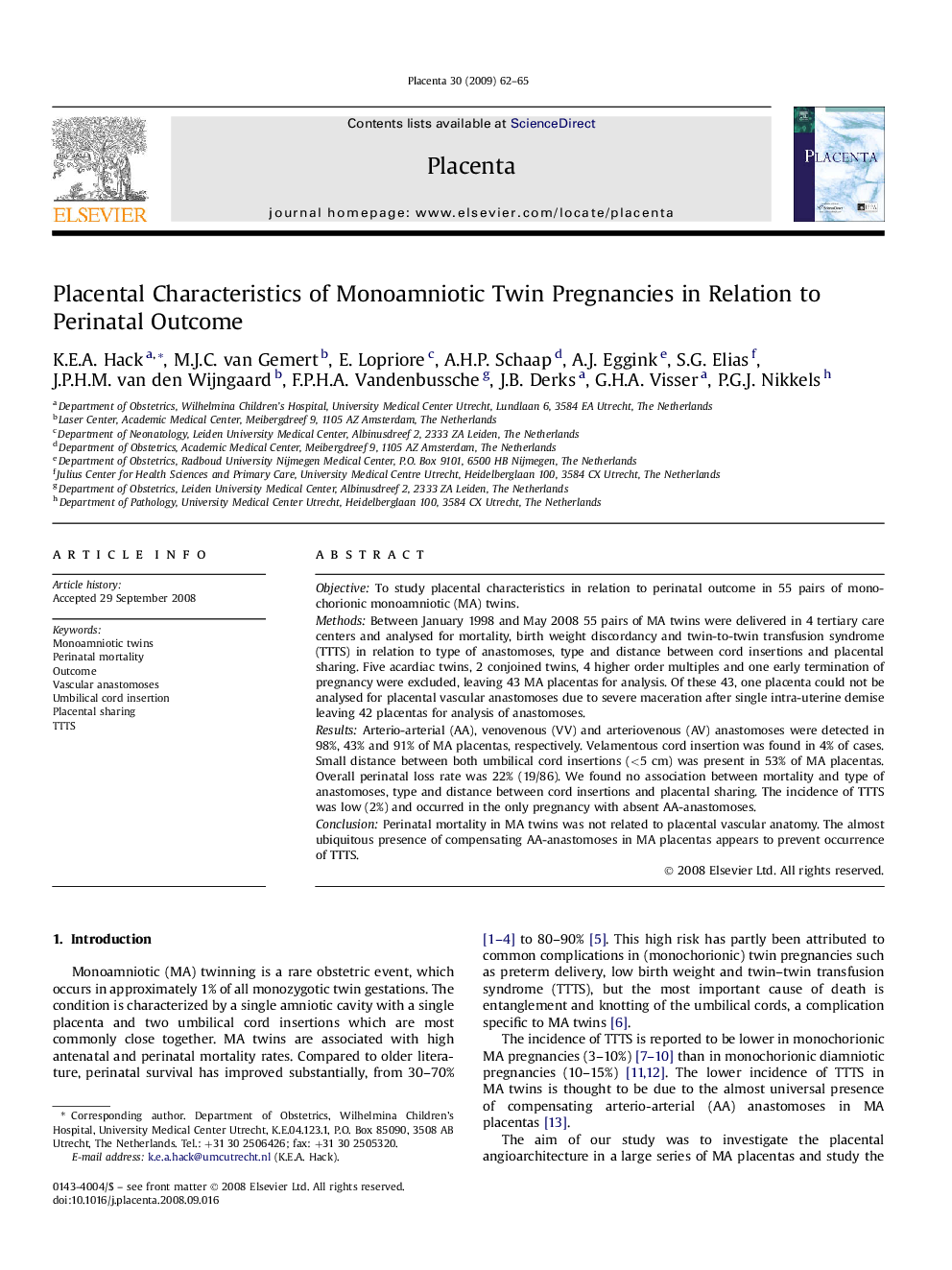| Article ID | Journal | Published Year | Pages | File Type |
|---|---|---|---|---|
| 2789948 | Placenta | 2009 | 4 Pages |
ObjectiveTo study placental characteristics in relation to perinatal outcome in 55 pairs of monochorionic monoamniotic (MA) twins.MethodsBetween January 1998 and May 2008 55 pairs of MA twins were delivered in 4 tertiary care centers and analysed for mortality, birth weight discordancy and twin-to-twin transfusion syndrome (TTTS) in relation to type of anastomoses, type and distance between cord insertions and placental sharing. Five acardiac twins, 2 conjoined twins, 4 higher order multiples and one early termination of pregnancy were excluded, leaving 43 MA placentas for analysis. Of these 43, one placenta could not be analysed for placental vascular anastomoses due to severe maceration after single intra-uterine demise leaving 42 placentas for analysis of anastomoses.ResultsArterio-arterial (AA), venovenous (VV) and arteriovenous (AV) anastomoses were detected in 98%, 43% and 91% of MA placentas, respectively. Velamentous cord insertion was found in 4% of cases. Small distance between both umbilical cord insertions (<5 cm) was present in 53% of MA placentas. Overall perinatal loss rate was 22% (19/86). We found no association between mortality and type of anastomoses, type and distance between cord insertions and placental sharing. The incidence of TTTS was low (2%) and occurred in the only pregnancy with absent AA-anastomoses.ConclusionPerinatal mortality in MA twins was not related to placental vascular anatomy. The almost ubiquitous presence of compensating AA-anastomoses in MA placentas appears to prevent occurrence of TTTS.
